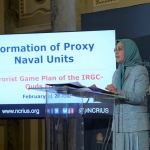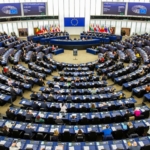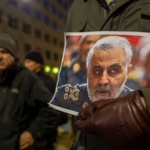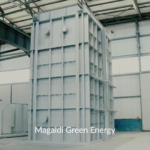After 16 days of negotiations, yesterday the US, EU, Russia, Great Britain and China, and Iran reached historical deal on the nuclear program in Vienna. A pact that works for reduction of he production of uranium in Teheran for the next 10 years. And, at the same time, it stops sanctions and trade sanctions.
[subscriptionform]
[level-european-affairs]
Although this is the formal end to decades of conflict with the West, especially during the Presidency of George W. Bush, the Israel’s contrary reaction and the contemporart and inconsistent alliance between Washington and Sunni’s countries, like Saudi Arabia, could be a warning for the International Community.
Inspired by the cartel the previous April 3, the agreement includes four key points. The cut of 98% of the stocks of enriched uranium. The use of centrifuges reduced to two-thirds. The possibility, not automatic,of Alea inspections on Iran’s nuclear facilities, after approval of the court arbitrary composed by the same countries that have signed the agreement. The gradual reduction of the arms embargo within the next five years. The UN resolution is expected next week, when it meets the Security Council.
The heart of the matter between the US and Iran is mainly the use of enriched uranium for civilian and not military. But also there’s the will to create a diplomat axiswith the biggest Shiite state in the Middle East, able to support the Assad regime in Syria or Hezbollah in Lebanon and decisive in the reconquest of the north-western territories in Iraq, now under the Caliphate.
Additionally, beyond this agreement, there’s the oil question. Iran is the fourth largest producer in the world and, with the end of the embargo, will increase its production. The effect could be the oil drum’s fall in price on the International Markets. Moreover, until the seventies, Europe was the first foreign market for Teheran.
US President Obama said: “No deal means a greater chance of more war in the Middle East. America negotiated from a position of strength and principle and stopped the spread of nuclear weapons. The comprehensive, long-term deal, demonstrated that American diplomacy can bring meaningful change”. And warned Congress he would veto any legislation that prevented its successful implementation.
Iranian President Hassan Rouhani talks about “historic deal which opened a new chapter in Iran’s relations with the world”. Eu High Representative Mogherini thinks that the deal is ‘a sign of hope for the entire world’. While is a “sigh of relief for the entire world” in Russian President Putin’s opinion.
The chorus, however, was not unanimous at all the International Community. Predictably, Israel’s response was not long in coming: “The agreement is a historical mistake. “The world is a much more dangerous place today than it was yesterday. The leading international powers have bet our collective future on a deal with the foremost sponsor of international terrorism. “In the coming decade, the deal will reward Iran, the terrorist regime in Tehran, with hundreds of billions of dollars. This cash bonanza will fuel Iran’s terrorism worldwide, its aggression in the region and its efforts to destroy Israel, which are ongoing”. Whereas an official of the government of Saudi Arabia denounced the possibility that Iran could “devastate the Middle East”.
The contradictions within the deal, as the contemporary US alliance with Saudi coalition in Yemen against Houtii (Shiite’s faction supported by Tehran), could bring a long-term strategy. The chance given by the United States and its allies to Iran is directed to the Iranian civil society. The opening to the outside could bring the Shiites and the Sunnis to talks again. This could be an effective weapon against the expansionism of the Islamic State.
Not only abroad. Much of the criticism have come from the United States’s press. Bret Stephen (Wall Street Journal) said that “the agreement will be disastrous” and “unlikely Iran’s foreign policy will change”. Indeed, the deal could backfire on Washington.
Giacomo Pratali
[/level-european-affairs]







